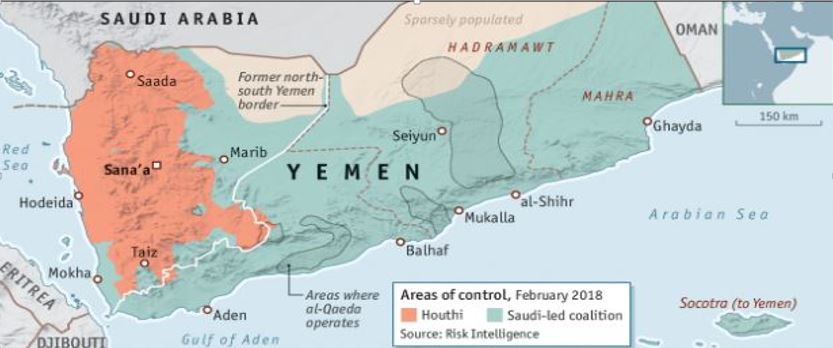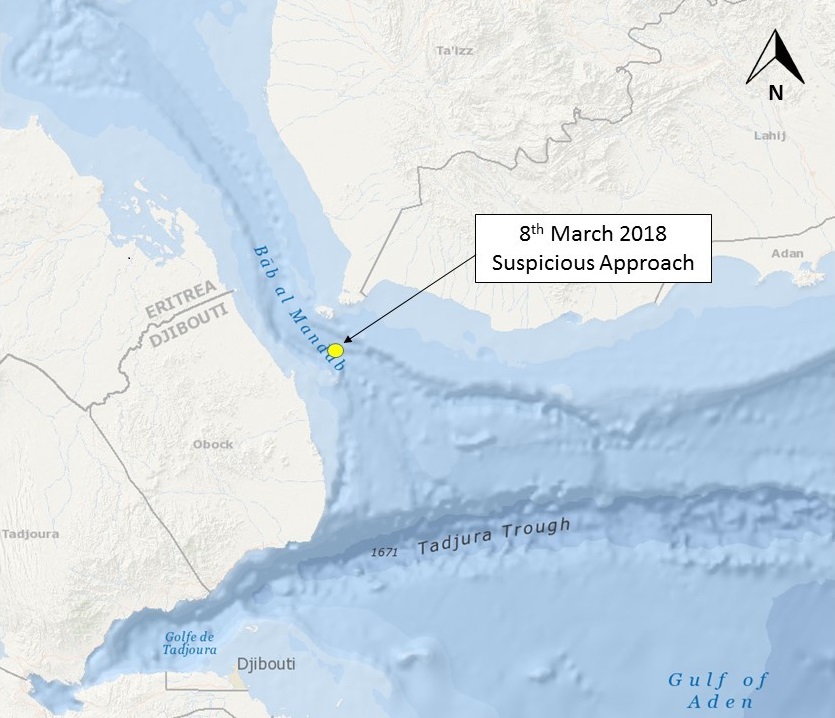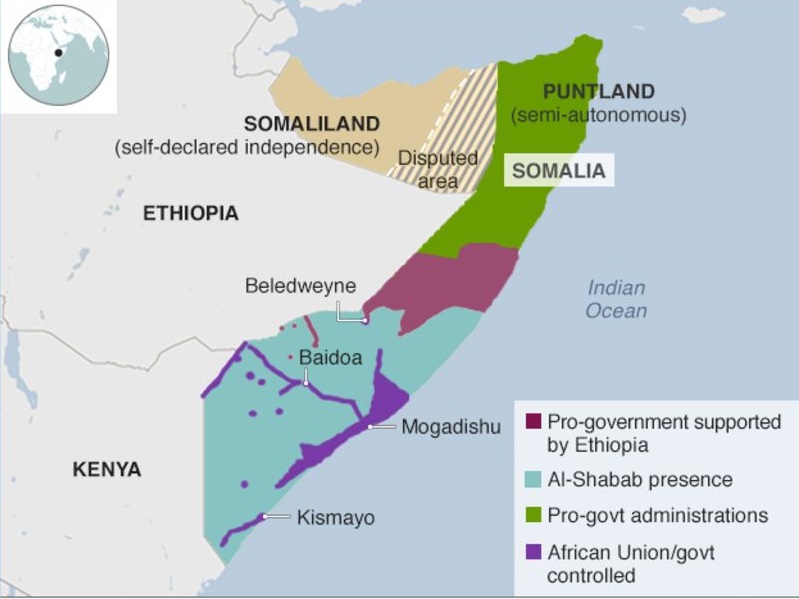Indian Ocean HRA Overview
Continued reported incidents reflect that the HRA remains a threat in regards to piracy activity in the region. Recent efforts to improve the security environment will reduce the impact of Somali piracy, however, continuing deterioration of onshore conditions in Somalia and Yemen such as famine, terrorist groups, a weak central government and poor governance of coastal areas continue to influence piracy in the region. Pirate financiers capitalise on the chaos offering opportunities to local people. Piracy groups onshore Somalia still bear the motivation to try and carry out attacks and still with capability to target merchant vessels. Increasingly, vessels in the HRA are subjected to incidents that appear to be co-ordinated small boat piracy approaches however they choose not to ultimately attack. These incidents are then difficult to classify as attempted piracy or simply as regional patterns of life in the area. However, as seen in recent months there have been numerous attacks and attempted boarding’s ranging from incidents in the Somali Basin, Gulf of Oman, Gulf of Aden and the Southern Red Sea. The increased presence of naval patrols and armed security on board vessels act as a deterrent to the threat of piracy, however those vessels transiting in the area without the presence of armed security remain a significant risk.
Reported Incidents HRA
1 incident to report (UKMTO)
8th March 2018 Suspicious Approach: at 0920 an MV in posn 1232N 04327E (Bab el Mandeb Strait) was approached by 3 skiffs, 3-4 POB each. Vessel and crew are safe.
Intelligence comments: The incident reported on the 1st March was located in close proximity to the incident reported this week. Pirate paraphernalia however unlike the previous incident was not reported to be observed. It is therefore difficult to assess whether such incident was attributed to regional patterns of life in the area rather then attempted piracy.
However, what has remained consistent is probing approaches by pirates in relation to assessing vessel vulnerabilities. It is uncertain whether the approach reported coincides with such tactic as with limited information it is difficult to assess.
Yemen Update
This Week
UK, Saudi to strengthen UN inspection regime for Yemen: UK and Saudi Arabia have agreed to strengthen the UN inspection regime to ensure that Yemeni ports remain open. Saudi Arabia introduced a new aid initiative in January this year which directs humanitarian and commercial shipments away from the rebel held Hudaydah port in which handles 80% of Yemen’s imports.
Saudi-led coalition airstrikes hit civilian areas in al Hudaydah governorate: Saudi-led coalition airstrikes killed 6 civilians in the Hudaydah governorate, western Yemen. Coalition forces seek to seize Yemen’s western coast including Hudaydah port from the Houthi rebels.
Ongoing Threat of Violence/Terrorism at Sea off the Coast of Yemen
- Yemen’s civil war has created an environment mirroring Somalia’s lawlessness. The ongoing conflict in Yemen demonstrates how poor security on land has led to violence spilling out into the maritime domain. Houthi rebels continue to control a large amount of Yemen’s red sea coastline.
- In relation to coalition forces advancing towards the Red Sea port city of Hudaydah, currently under Houthi rebel control, increases the risk to shipping in the region. In the past Houthi rebels have repeatedly threatened to attack merchant vessels in the region should coalition forces attempt to re-take Hudaydah port. If coalition forces seized Hudaydah it could be argued this would be a turning point in the civil war as the Houthi rebels would lose their main source of finance through the port in which illegal arms are smuggled.
- Unconfirmed reports surfaced on the 7th January 2018 stating that the Saudi coalition had destroyed at least one Houthi vessel near Hudaydah port after an alleged attack occurred against a Saudi oil tanker. The vessel was reported to be loaded with explosives and controlled remotely.
- The threat of terrorism at sea off the coast of Yemen remains by rebel groups and terrorist organisations such as AQAP remains. Such is highlighted by attacks against the LNG Tanker Galacia Spirit in October 2016 and the MT Muskie a product tanker in May 2017. Both involved the use of explosive laden skiffs, as an attempt to cause major devastation in the critical international shipping passage of the Bab-el-Mandeb.
- It continues to be a persistent threat that merchant vessels may be the subject of a miscalculated attack or as has been suggested recently, possibly threats of a calculated attack.
- BIMCO/ICS/INTERTANKO issued guidance on maritime security in the southern Red Sea and Bab el-Mandeb Strait, an area essential to trade but is subject to new threats arising from the Yemeni conflict, the advice should still be read in conjunction with the BMP – MS instructions.
Somalia Update
This Week
Berbera Port – Somali government rejects UAE’s port deal with Ethiopia and Somaliland: The agreement over Berbera port was declared ‘null and void’ by the federal government of Somalia stating that the agreement violated the unity of Somalia and the constitution. Ethiopia holds 19 per cent of the Berbera port, in an agreement with Somaliland’s Port Authority and UAE Company DP World. DP World remains the major share owner; with a 51 per cent stake, while Somaliland holds 30 per cent. The Ethiopian government will invest in infrastructural development for the Berbera port. The port is the commercial capital for Somaliland, which officially opened in 1968. It is located in Somaliland which is recognised by the international community as an autonomous state of Somalia.
120 Somali pirates freed from India: The pirates had served up to 7 years in jail for piracy offenses and they arrived back in Mogadishu this week. The incident comes off the back of an agreement in August last year between India and Somalia to transfer convicted pirates. Fifteen Somali pirates hijacked a commercial oil tanker belonging to the UAE last year, in the first successful hijack since 2012. The European Union arrested six pirates off Somalia’s coast in November last year. The operation took over 24 hours, after the Somali men attacked a 52,000-tonne container ship and a fishing vessel.
Al Shabaab has been increasingly active in Somalia in recent months. The militant group has been battling the Somali Federal Government (SFG) in an effort to govern Somalia. Since 2013, al Shabaab pledged allegiance to al-Qaeda attracting the United States to execute raids and airstrikes against the group. However increased US airstrikes have not enabled African Union Mission (AMISOM) and Somali security forces to gain enough momentum against the terrorist group, al Shabaab has not suffered any great loss of territory or significant casualties from the airstrikes. Al Shabaab continues to maintain strongholds in southern and central Somalia and continue to carry out attacks against military and civilian targets. Somalia is a country whereby tribal loyalties are stronger than national ties. The SFG and Somali forces lack legitimacy outside of Mogadishu. Further to this, al Shabaab further exemplifies the issue of famine, terrorism and corruption making the prospect of stability in Somalia in the near future bleak. Al Shabaab is likely to maintain its present operational tempo in 2018 and further expand its territory in central and southern Somalia.
Piracy
In 2017 between March and May, five vessels were hijacked in Somali waters, whilst this was reported by many to be a resurgence of Somali piracy, it can be assessed as more likely to be a result of a permissive environment during the inter-monsoon period allowing skiffs and PAGS to operate with ease. Until the deep rooted issue of piracy in Somalia are resolved, piracy will continue to be a threat. 2017 saw the worst drought Somalia has seen in 40 years, this coupled with the struggling government and extreme militant violence has brought 6.7 million people into crisis. Pirate financiers capitalise on the chaos offering opportunities to local people. Pirate groups are known to operate in the coastal regions of Puntland, namely Eyl and further south in the Galmudug region, namely Hobyo. It is needless to say, as the increased instability in Somalia continues, it will serve as a permissive environment for piracy operations with an ongoing threat to shipping in the region.


